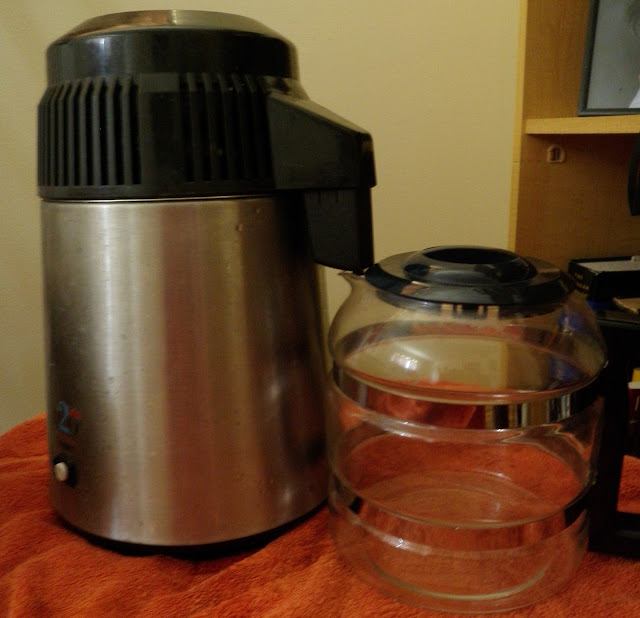As the body is made up of mostly water, and uses it for essentially every function of the body, it's pretty common sense to ensure we are getting enough, and through a good source. How much is enough? A good rule of thumb is drinking 1/2 your body weight in oz every day. For example, a 120 lb person would drink 60 oz daily, and a 200 lb person would drink 100 oz. More on days that we're active; outside sweating or working out, practicing yoga.
Since we need so much water, it's really important to drink water that's CLEAN. So what's the best go-to source? Tap, bottled, filtered, alkaline, distilled?
Tap Water. The municipalities will argue that their water is plenty clean. Better yet, it's chlorinated and fluoridated which is helpful to strengthen teeth!!! (NOT). I won't get into the fluoride argument here, but urge you to Google "fluoride in water" or check out the Fluoride Action Network. Listen, if I'm super thirsty, and at someone else's home, I won't refuse a drink of tap water. On a regular basis, it's definitely not something I am comfortable consuming in large amounts.
Bottled Water. You might be interested, or surprised to know that most bottled water (Dasani and Aquafina amongst others) is simply...TAP water from your local municipal source (DETROIT RIVER, baby!) BPA plastic bottles filled with the same water that I could get out of the sink at $1-2 a bottle while wrecking the environment? No thanks.
Filtered. Filtered water is a step up from bottled, as they use a carbon and resin filtration process to remove large particles from the water. Filters like Brita or Pur claim to make water taste better. Recently, they've removed the claims that the filters remove lead from their packaging. These filters do not remove fluoride or pharmaceutical compounds. Also, after 6 months of use, the carbon filters can actually become a breeding ground for bacteria (yum). They also take up space in the fridge and can acquire smells from your leftovers (double yum).
Alkaline Water. In a nutshell, simply drinking alkaline water and eating alkaline foods to balance the body is NOT simple as people on the internet are making it out to be. Have you heard lately: "Drink kale juice, it's alkalinizing!" "Lemon will counteract the alkalinizing effect of kale, be careful!" or "Meat makes you acidic." I've read quite a bit about pH and also talked to Dr. Matt and my conclusion is that the body's systems are way complex. Attempting to change pH levels in the body by eating certain foods or drinking special waters is oversimplifying to say the least. Read about shattering the myths of acid & alkaline here. I wouldn't waste money lugging huge bottles of alkaline water home from the health food store.
Distilled. After doing my homework, we landed on distilled as the best option available to remove fluoride, chlorine, heavy metals, and your neighbor's cholesterol meds and anti-depressants. Many consider distilled water "dead" or "flat" because literally EVERYTHING gets boiled out of it (even the minerals). Really, we should be getting most of these nutrients from fresh food, rather than relying on water. To cover our bases, it is important to use a trace mineral supplement to replace what the distillation process removes. So, 2+ years ago, we settled on H2O Labs for a distiller and are now drinking distilled water at home. It does take several hours to produce a gallon of distilled water, but we've gotten used to it and now I use it for drinking, making soup broth and steaming food. The water tastes delicious and I can rest assured that it's super clean.
 |
| Finished gallon of distilled water with Concentrace Minerals. Note the lovely litro carafes (behind the gallon) that we store extra water in! |
 |
| This is what's left after a week of distilling our tap water. It even smells chemically. Pretty gross. |
 |
| Our distiller, from H2O Labs. |

No comments:
Post a Comment